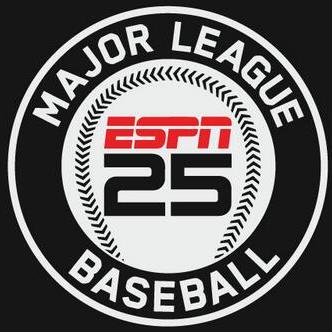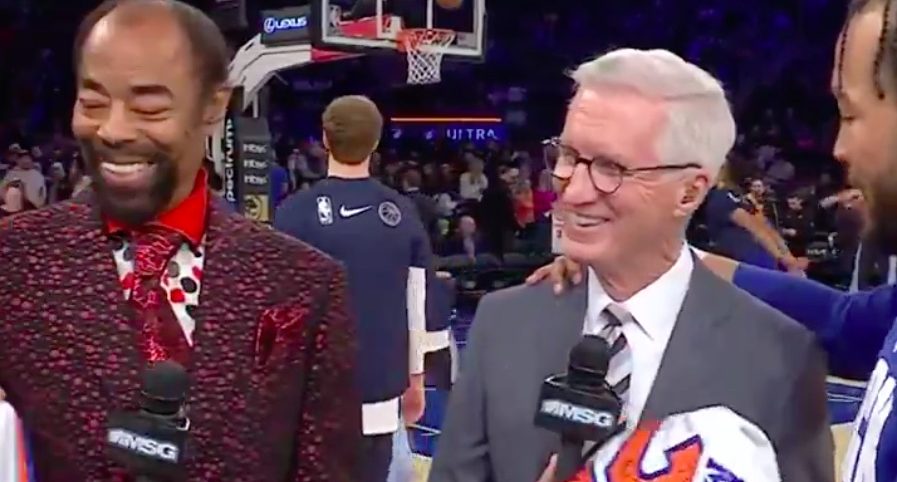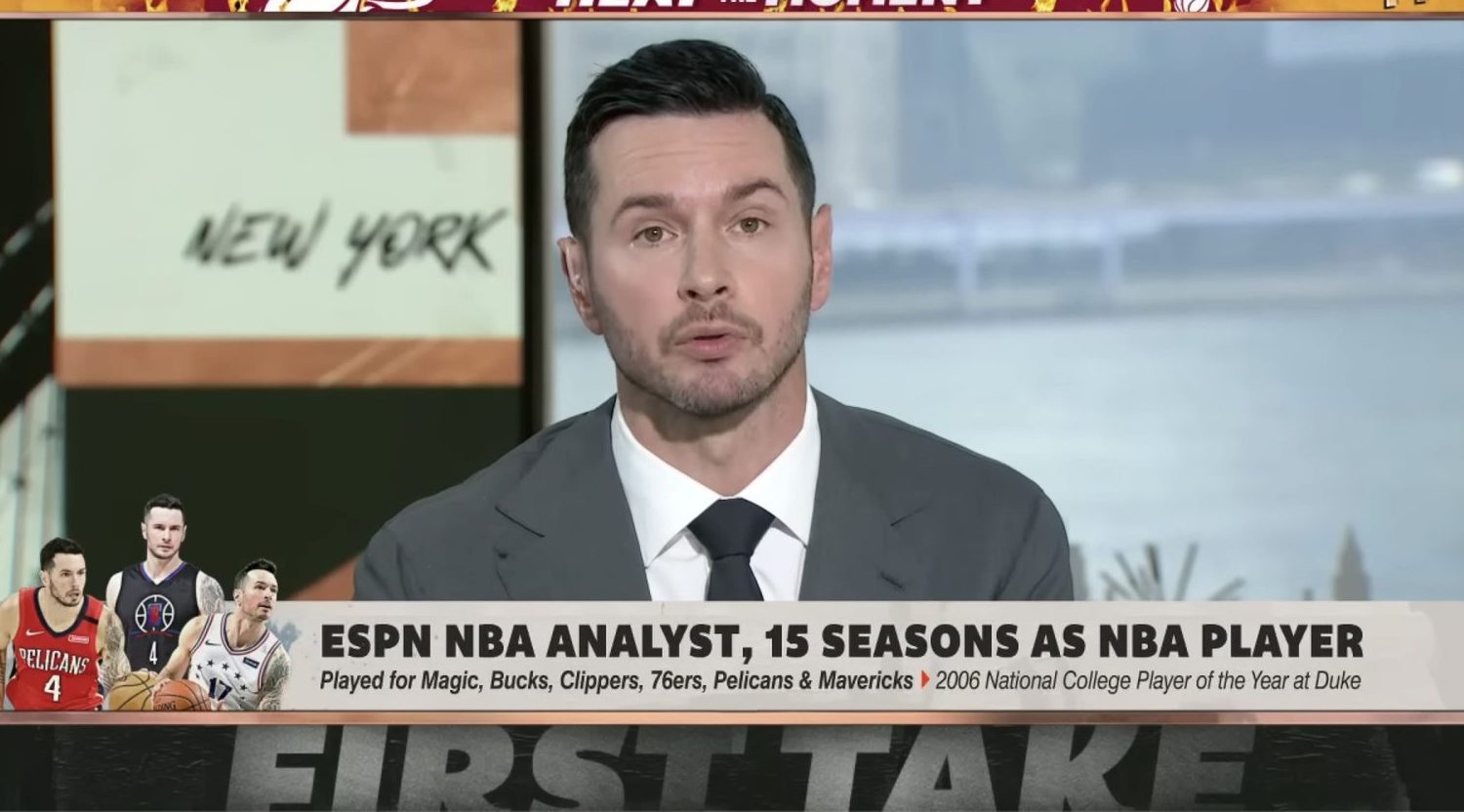ESPN enters its 25th season as the main cable rightsholder for baseball. We’ve already outlined some of the features you’ll see from all of the national TV partners including ESPN as a new eight year contract begins this season. Network President John Skipper and MLB Commissioner Bud Selig recently held a joint media conference call to discuss what viewers will see starting in 2014 and ending in 2021. They gave reporters some of the highlights of the new deal that provides ESPN more flexibility to air baseball’s big market teams on Sunday Night Baseball as well as highlighting smaller market teams on Monday and Wednesday Night Baseball.
In addition, ESPN is back in the postseason after a seven year absence and has an increased regular season schedule. Overall, here are some of items highlighted by Selig and Skipper in their conference call:
- ESPN can air as many as 101 games
- ESPN will show all 30 MLB clubs this season.
- ESPN can have increased appearances of marquee teams i.e., the Boston Red Sox, Los Angeles Dodgers, New York Yankees and St. Louis Cardinals on Sunday Night Baseball.
- ESPN has rights to all regular season tiebreaking games. TBS previously had the rights.
- Baseball Tonight’s Sunday Night Countdown pregame shows will be live from the site of each game.
Here are some of the highlights of what Selig and Skipper said to the media:
On ESPN showing all 30 teams:
Selig: Frankly, Major League Baseball’s remarkable competitive balance gives fans of every club, to use two of my favorite terms, the faith and hope that their teams can compete. ESPN will show at least one game of our 30 clubs throughout the season, which is very, very important to me.
Skipper: I like a lot of the new parts of the new deal. The Commissioner noted the 30 games. We and the league have both talked about making sure that fans get a chance to see every team nationally during the regular season. I think that’s an important new feature.
Selig: All 30 teams will be on, and there will be a lot of teams on at different times. The ESPN schedule will manifest what’s going on in the sport, and that is that we’ve got a lot of teams that are very competitive and therefore will be on television.
On ESPN getting back into the postseason for the first time since 2006:
Skipper: We’re very excited about that. I mean, postseason, interest in baseball peaks. It’s a wonderful time of year. Again, thanks to our friends at baseball, we’ve been there with news and information. Baseball’s other broadcast partners have been excellent at being flexible, and I think they understand that having SportsCenter at the World Series and having our reporters on the field is excellent for everybody. But there’s nothing like being there and it being your booth and being on your air and that creates a level of excitement. So it was very important for us, and we’re thrilled to have it in the new deal.
We feel the same way about the play‑in games and the pennant chase games. It’s really going to give an air of excitement. You can kind of feel it on the campus here when you’re in the postseason and it’s our game. The level of excitement is very high, so it’s very important to us.
On the question over showing more of the smaller market teams like Baltimore and Pittsburgh this season:
Selig: I think ESPN helps us. We are very careful in our whole television schedule in how we schedule, who we schedule. Listen, the Pittsburgh story was well‑documented everywhere last year, including on ESPN. Baltimore, who I think has an extraordinarily competitive team this year and will be ‑‑ I think ESPN just fits into the local group, the rest of our national, and I think it helps clubs. The more exposure this sport gets, the more it helps us, and I regard the ESPN part of it as extremely important.
Skipper: And I just would point out, we have the Pirates on May 11th. The Pirates are pretty important to this. I plead guilty, there was a question earlier about favoring marquee teams, and it’s only natural, right. We know we’re going to get the best ratings if we put the Yankees and the Dodgers and the Red Sox on television, and we had good conversations in our negotiations about a player like Andrew McCutchen. It works for all of us to get more exposure earlier and for national fans to see him more often, and so we’ve reached a new deal where we get more games and we get more studio hours and highlight rights, and one thing that was important to baseball is we want everybody to see all of our great players, and we’re excited about doing that. So we were thrilled to be doing that.
On having games being made available on the WatchESPN app allowing fans to watch games on mobiles and tablets:
Selig: This is the new world we live in. There’s no question about it. Look, when I say that the sport has never been more popular, that means, and we do a lot of this through BAM (Major League Baseball Advanced Media), of course, as all of you know, and BAM has been unbelievably successful. I think John would share that view, and we’re proud of that. I think it’s just another link to our fans, and that’s important. It’s very, very important to me. That’s the world we live in, and we want to live in that world and be part of it.
Skipper: It’s part of the new deal which we’re excited about. One of the reasons sports is so important these days is you have to watch it live, so the ability to watch it on your desktop computer at work, it does increase work productivity, the more ESPN you watch, by the way, and this will be particularly important when you have the pennant chase games. Some of those are day games, and we’re able to bring that to fans on devices that they can get to if they’re not home. I think a good part of the new deal will be terrific for fans, and that’s ultimately, as the Commissioner is saying, what matters about this. It’s giving fans more opportunities to watch in more circumstances. We’ve had a good working relationship with baseball at doing that.
From Awful Announcing: John, you talked about all the teams being shown on ESPN this season. What about Sunday Night Baseball when you get the opportunity to show more marquee teams? Can you explain the flexibility of Sunday Night Baseball and getting more appearances by the Yankees and Red Sox and Dodgers in there?
Skipper: Well, in the new deal, we do get a few more opportunities to showcase the big teams, and we’re trying to do a balance, right? Sunday Night Baseball is the marquee, exclusive national broadcast. It’s the time where our goal there is to bring the nation together to watch a baseball game, and it’s in everybody’s interest there to feature the marquee teams and marquee players. But we’re able to do that balance of putting some more games on Sunday night, but in our Sunday night and Monday night, Wednesday night, holiday games – we haven’t mentioned the fact that we have more games now on Memorial Day, 4th of July, Labor Day – we’ll get a chance to feature teams from other markets and a chance for people to see other stars from baseball. So I think it’s a pretty good balance, and again, we worked well with baseball here to try to do both, which is, let’s attract a big, broad national television audience and let’s also expose that audience to more teams.








Comments are closed.